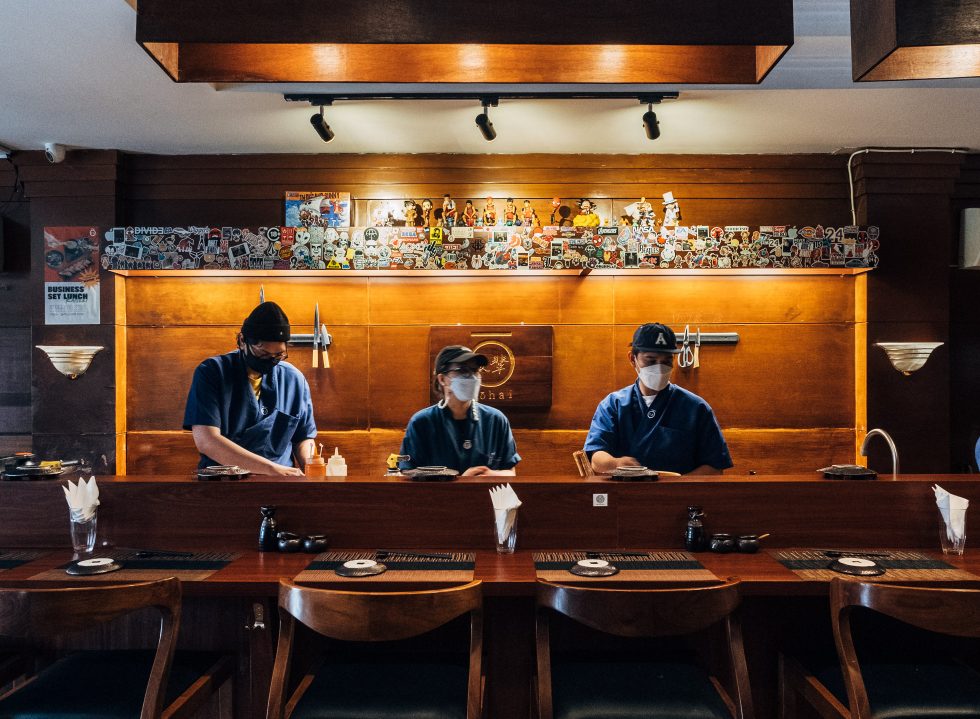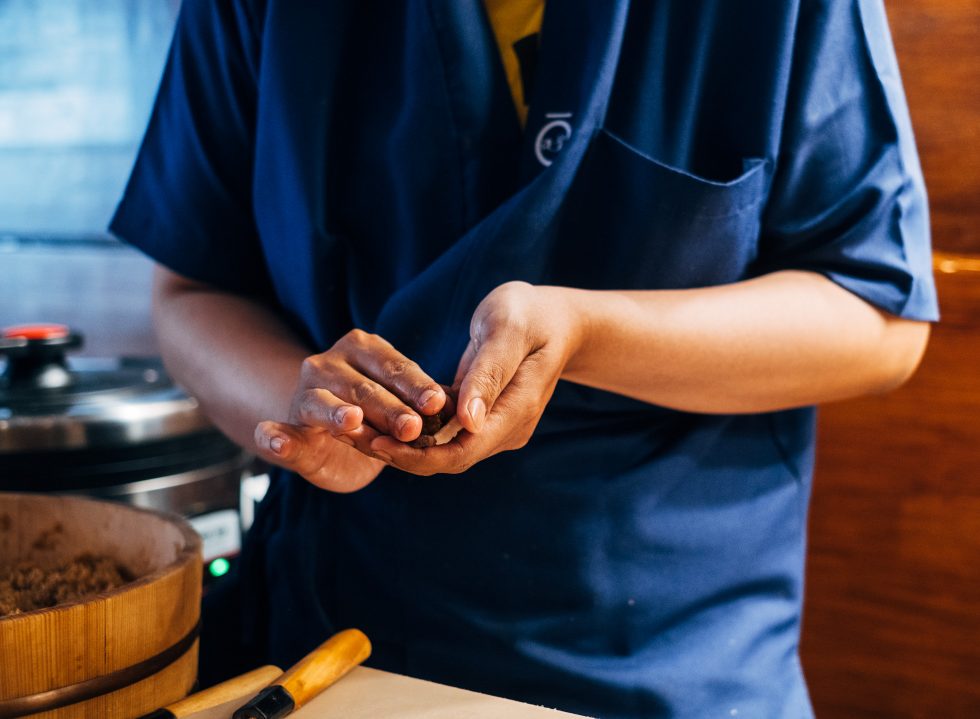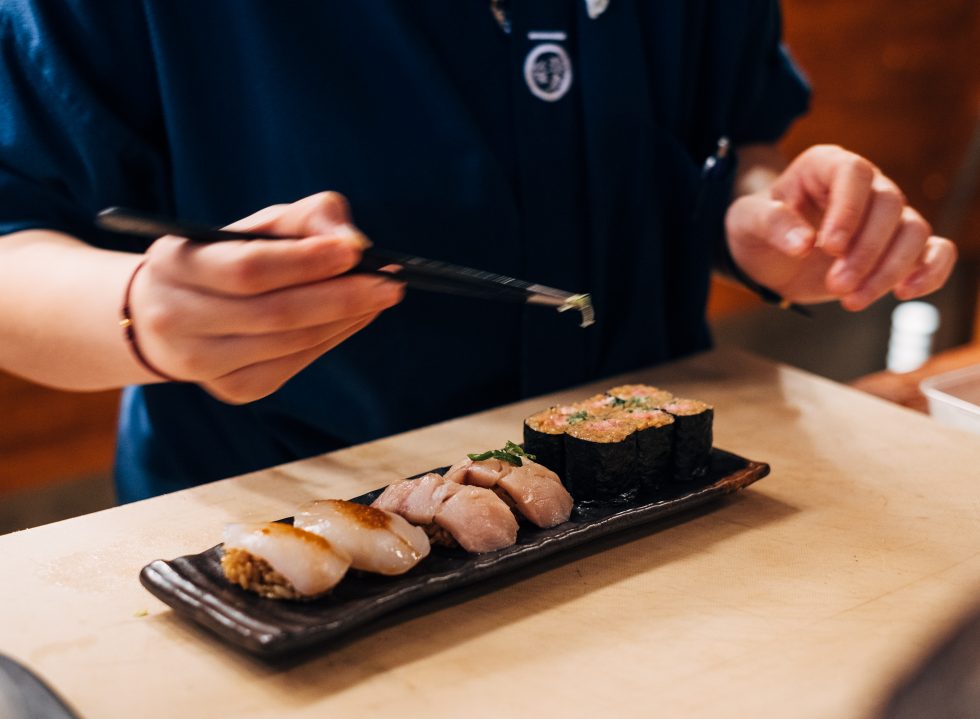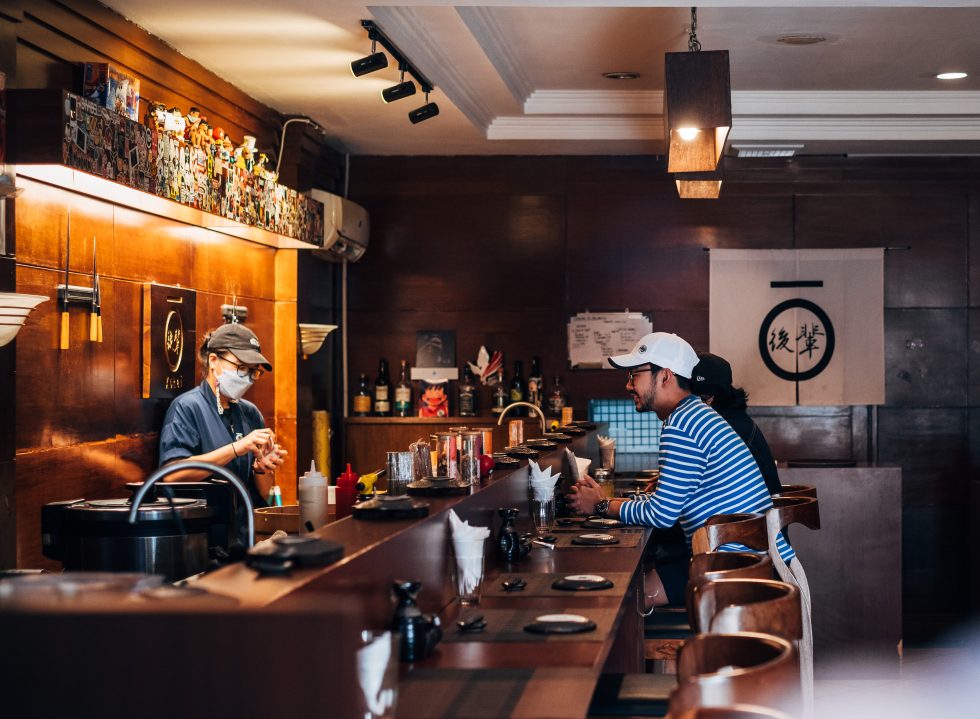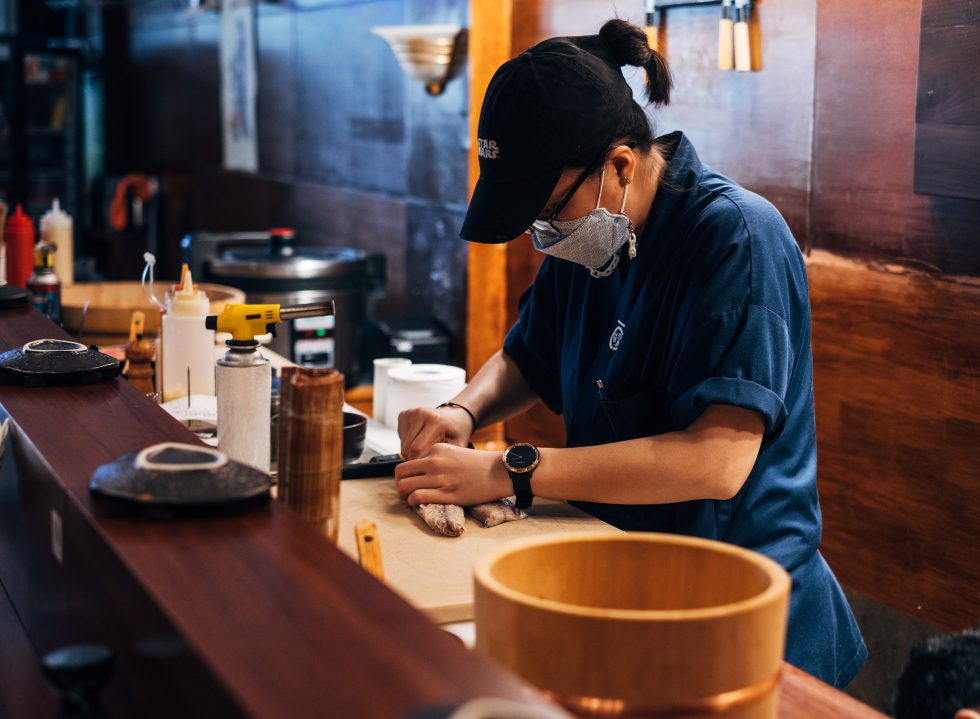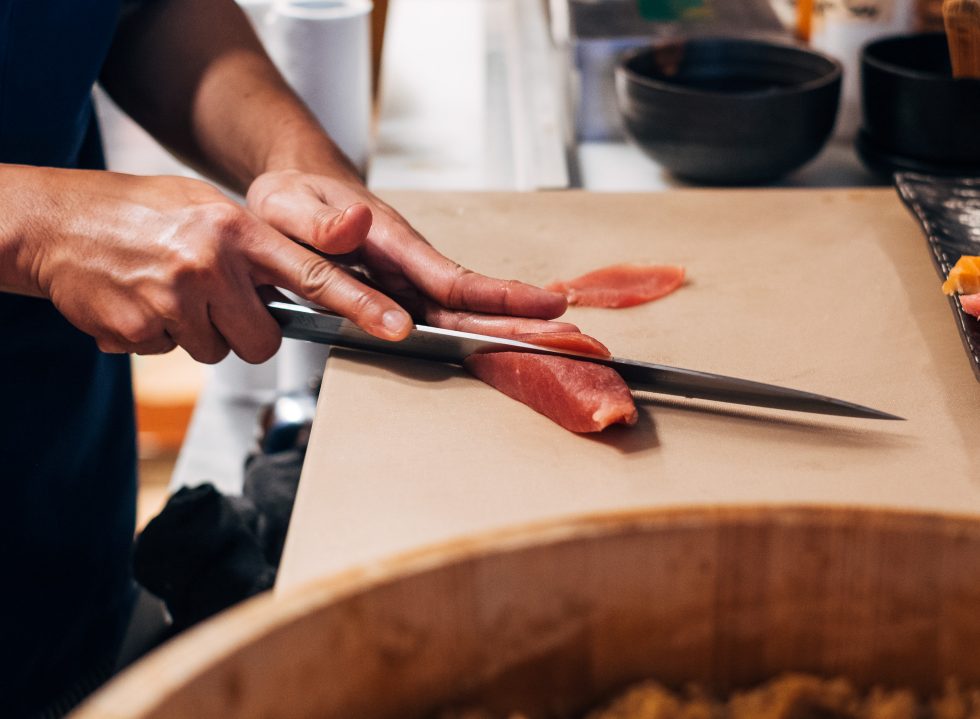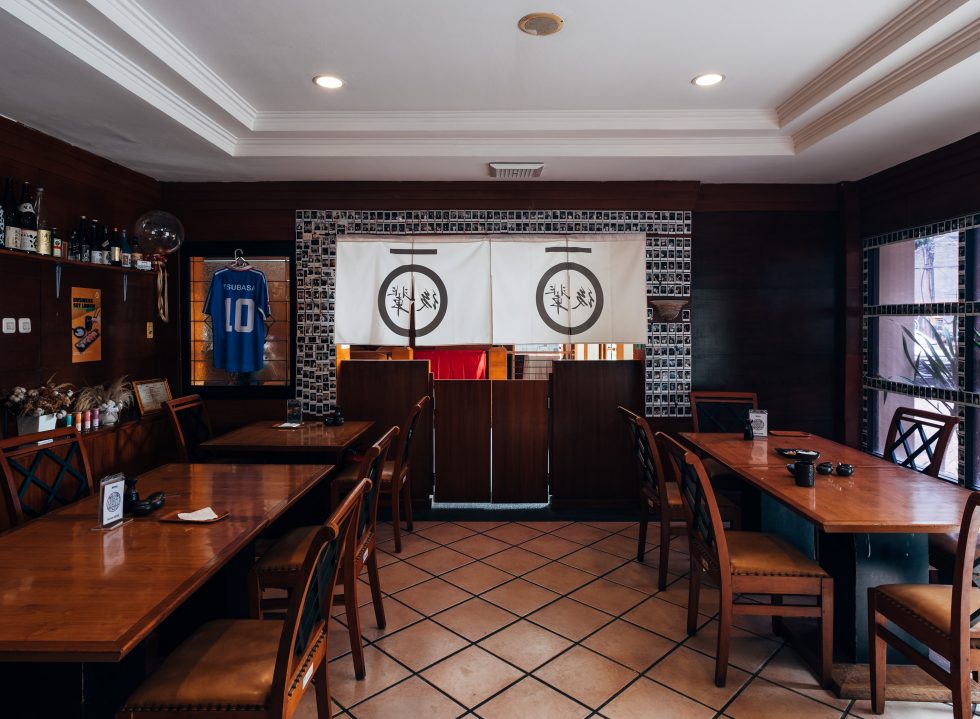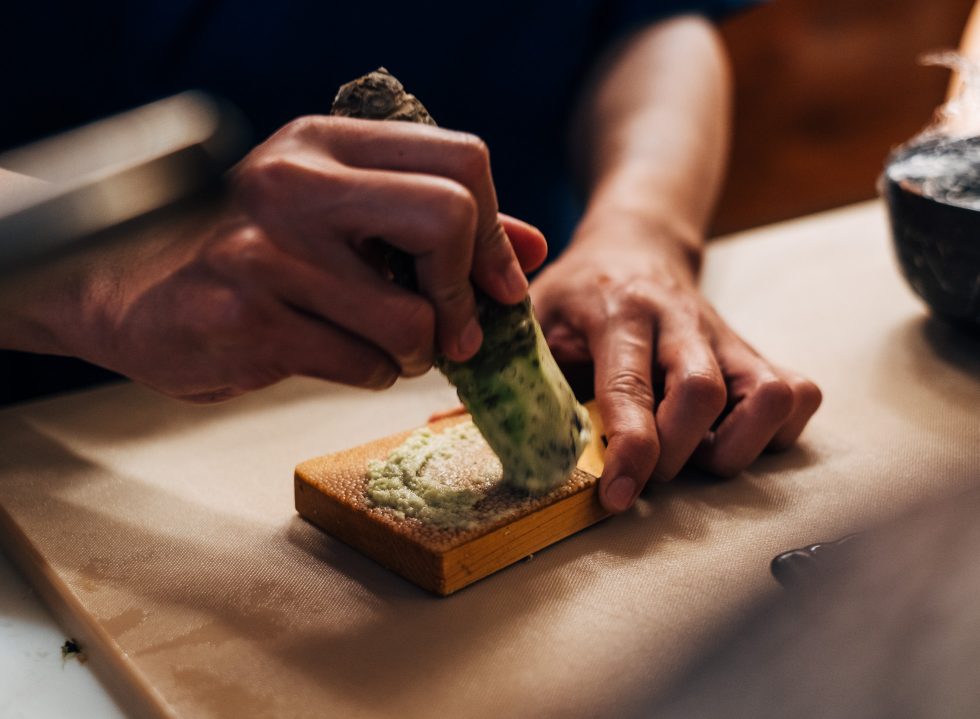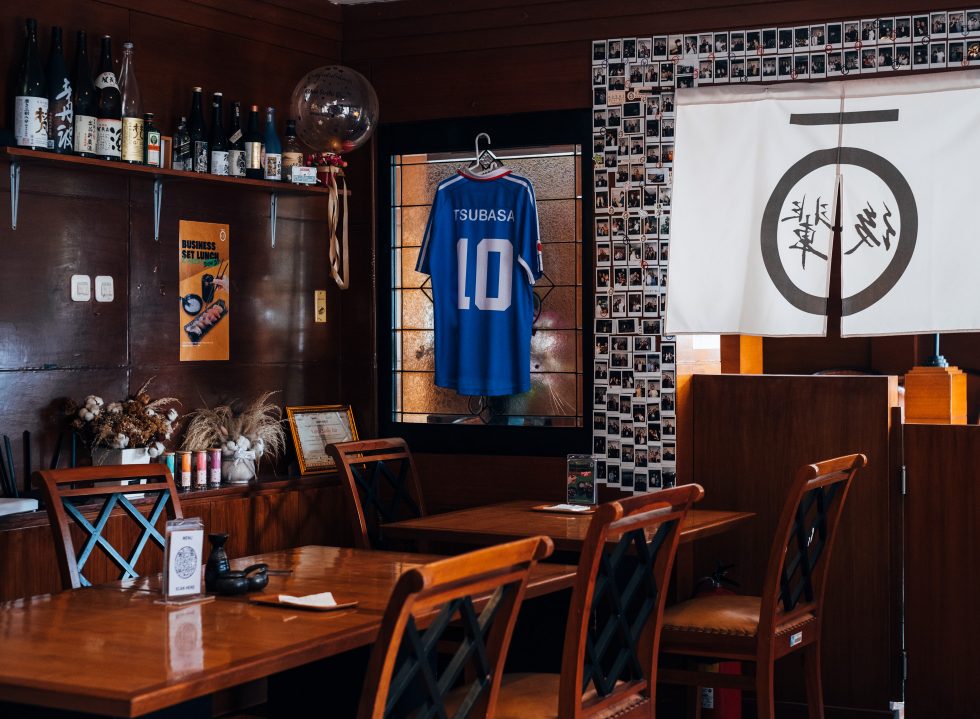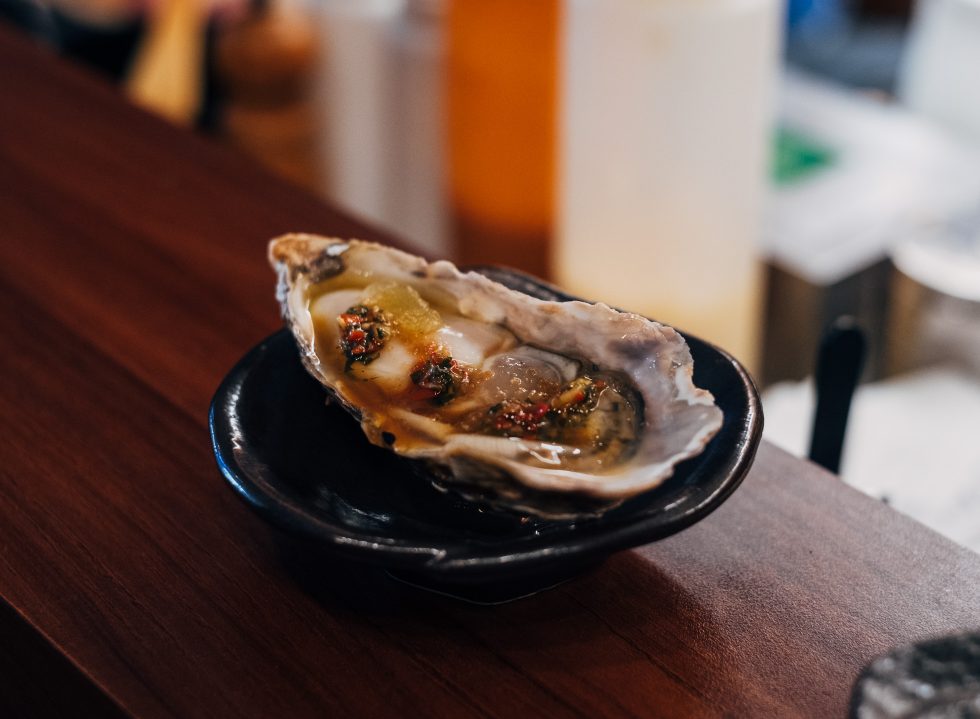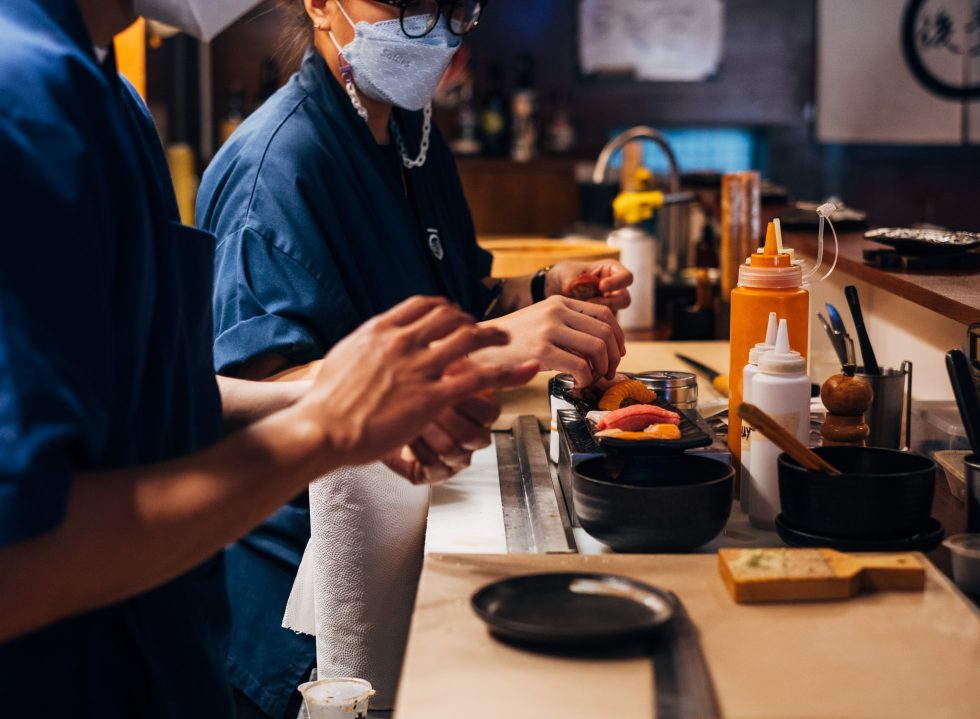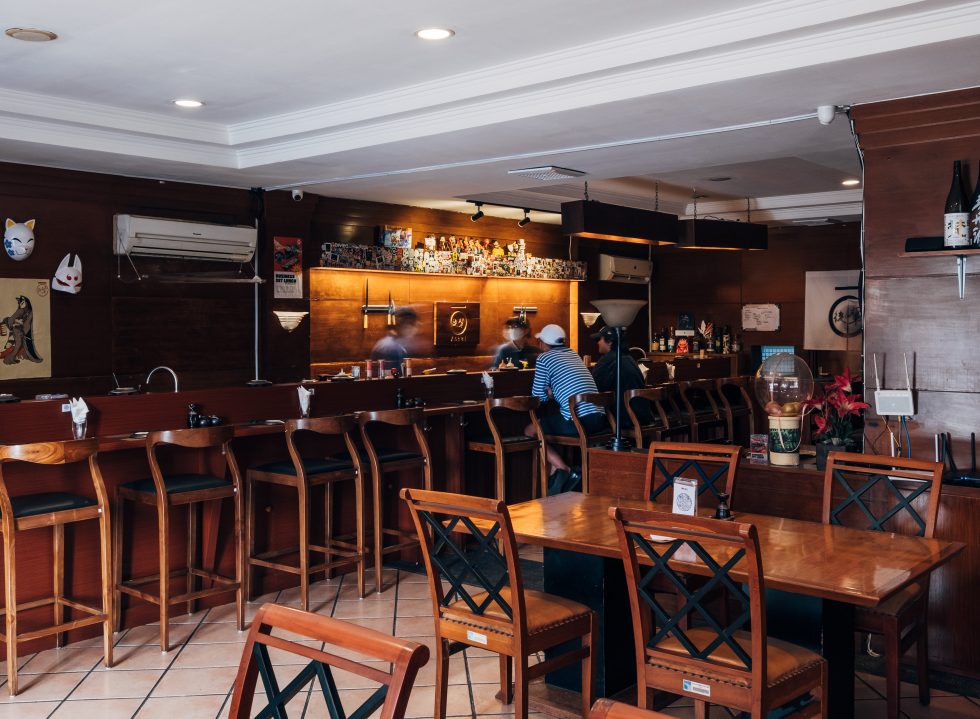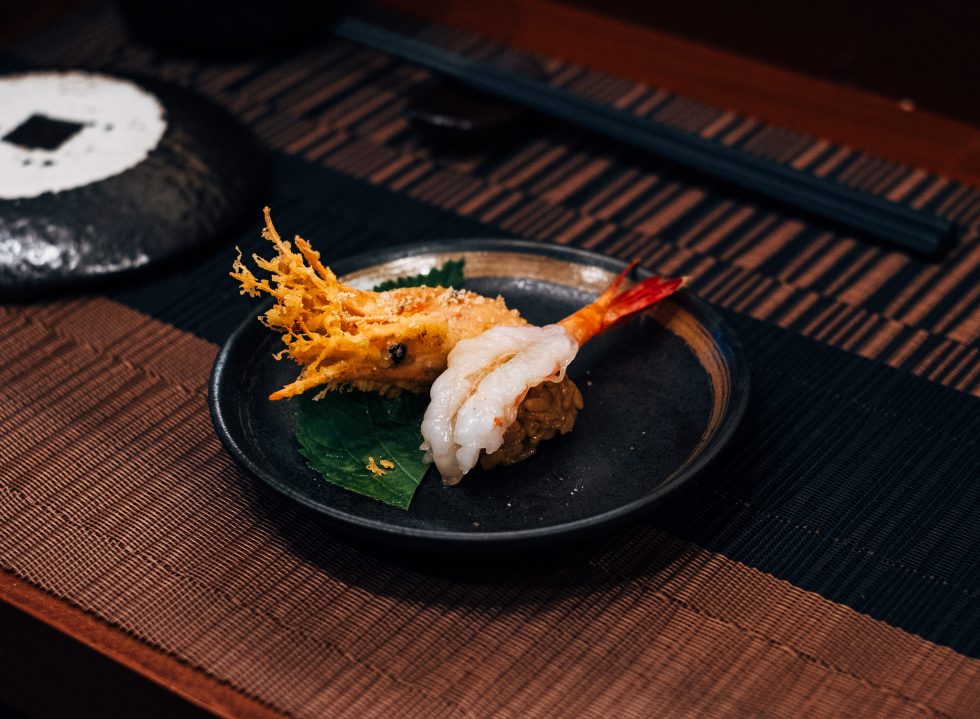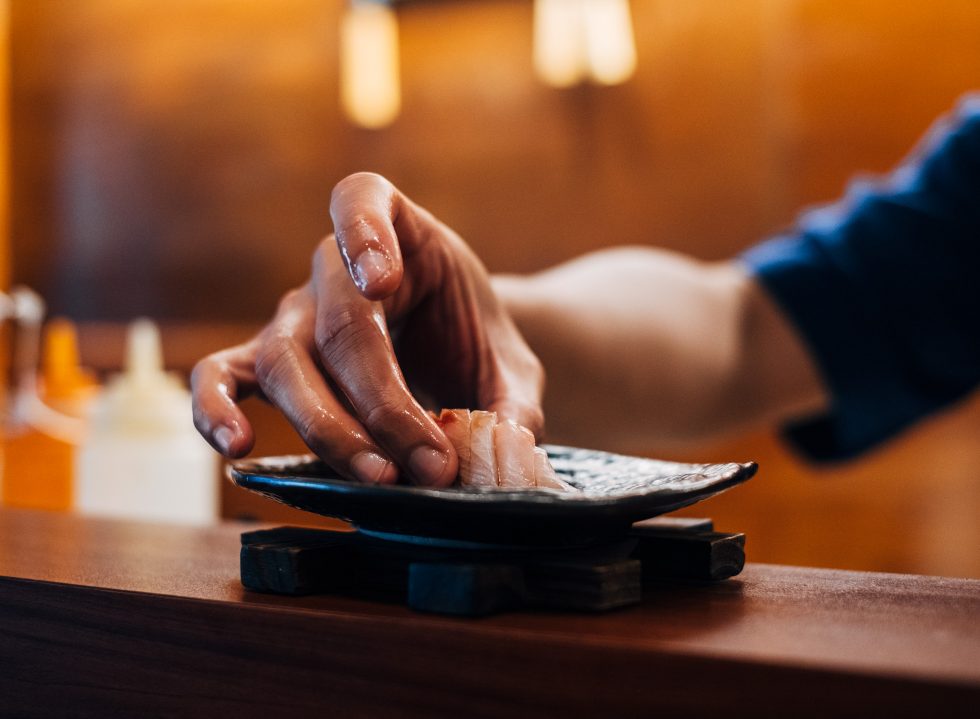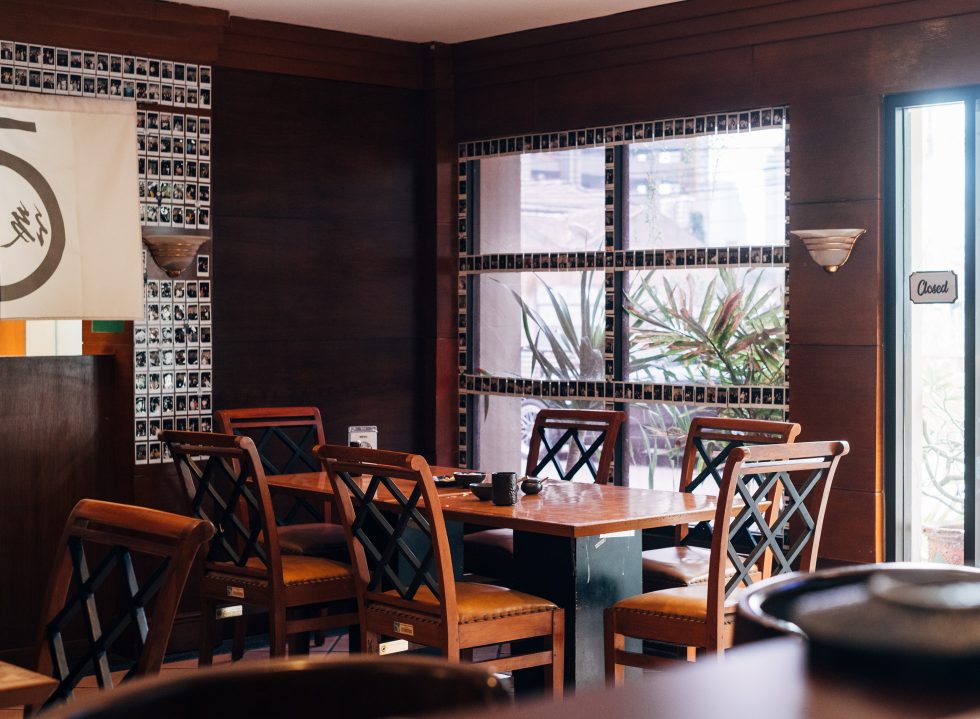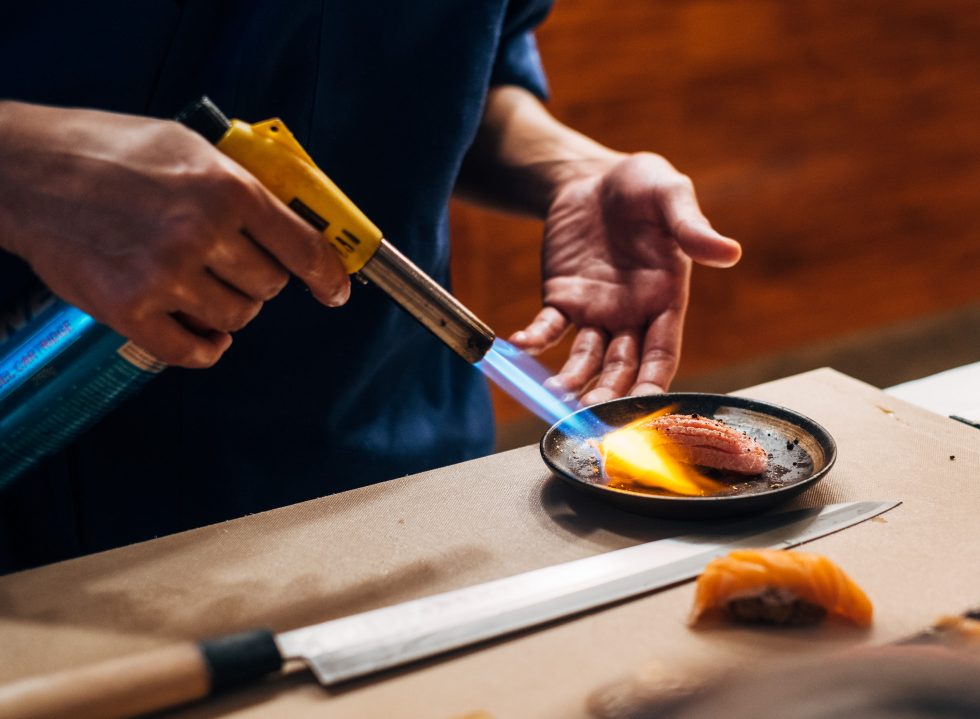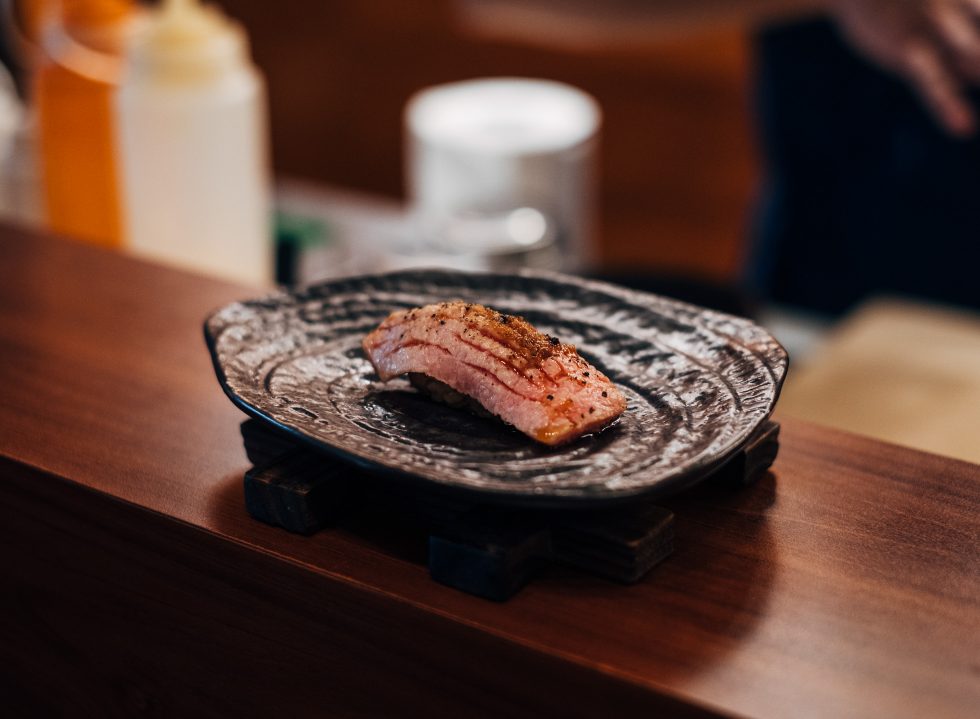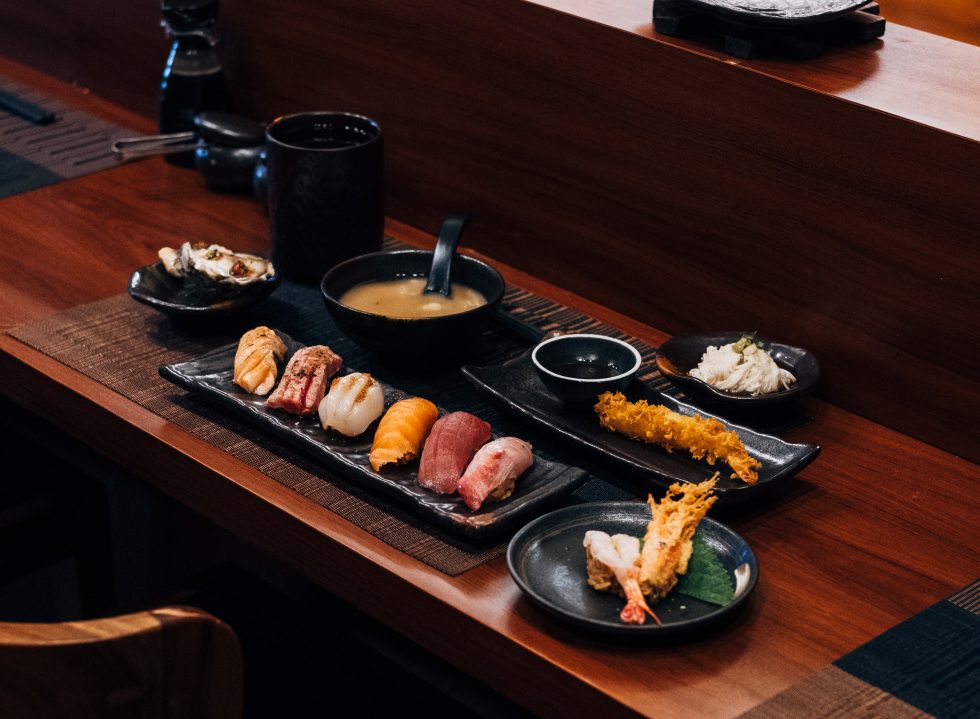When it comes to dedicated sushi restaurants, it’s often the case that they thrive by maintaining exclusivity. Beyond hefty price tags, these places—primarily manned by sushi masters with significant years of experience under their belts—would sometimes have difficult reservation systems that further limit the guest list. Kōhai Sushi Bar in Kuningan Timur, though still striving for quality, opts for something different.
Kōhai’s home can be found tucked to the side of Kuningan Guest House, charmingly compact and dominated by calming wood accents. Polaroids of regulars decorate the interior of the sushi restaurant, hinting at the customer-centric philosophy behind the name.
“The word kōhai caught our attention. It means ‘junior’, so the idea is that we want to treat our customers like they are our senpai, or seniors, and let them know that we’re eager to learn from them,” shared Siska, one of Kōhai’s original founders—a title she shares with her college friends and former colleagues, Aldi and Reinald.
Though Kōhai began with deliveries like most pandemic businesses (which they did from Reinald’s garage), they have now grown beyond just sushi rolls and rice bowls to incorporate an omakase experience into their restaurant. The set-up has since become the highlight at Kōhai, so much so that they had to expand the omakase bar.
Siska, Aldi and a band of eager-to-learn chefs helm the bar, ready to engage in casual chats in between explanations about the dishes. Though the group may not have the experience of Japan’s sushi masters, sampling the courses would reveal that this doesn’t stop them from punching above expectations. Devised by the three founders, the omakase menu creatively utilises both imported and locally-sourced fish to create a series of traditional and fusion dishes, catering to the Indonesian palate while still respecting their Japanese roots.
Take the Maguro Akami, a Maluku-sourced lean tuna nigiri with a decidedly local flair thanks to the crispy garlic confit topping. The 13-course meal also includes more classic options like the addictingly soft Hotate. Made with scallops imported from Hokkaido that are subtle in flavour, the nigiri gives a melt-in-the-mouth sensation upon consumption.
One similarity links these sushi dishes: they all use rice infused with akazu (red vinegar), a feature usually found only at high-end omakase establishments. Supplemented with locally-sourced, freshly-ground wasabi, they each pack a bold (but balanced) flavour—part sweet, and a tiny bit spicy.
While experiencing the omakase is the quickest way to reveal the laid-back and welcoming character of the restaurant, the same level of courtesy also makes its way to the ala carte offerings, with the crew sometimes accepting off-the-menu requests from their customers. This—combined with the relatively pocket-friendly price tags—creates a casual and inclusive atmosphere, which makes one feel easily at home with Kōhai.
